Capital:
Gaborone
Currency
Pula
Best time to visit:
The period from May to October, characterized by a cool and dry climate, is ideal for observing wildlife. The average daytime temperature is around 25 °. At night in the desert, the temperature can drop significantly. Dry heat usually prevails from October to December. The most beautiful light occurs in the warm rainy season which lasts from January to April.
In a word:
Dumela (hello in Tswana)
Vaccines
Recommended Antitific, Prophylaxis Antimalarial (chloroquine-resistant)
Warnings:
- In some regions malaria is present from November to June;
- The country has a satisfactory health system and, thanks to the dry climate, involves fewer risks than other African states
Essential experiences:
Fly over the Okavango Delta with a small Piper; Sail on a quaint mokoro along the Okavango River; Experience a busy day of game drive in Chobe NP
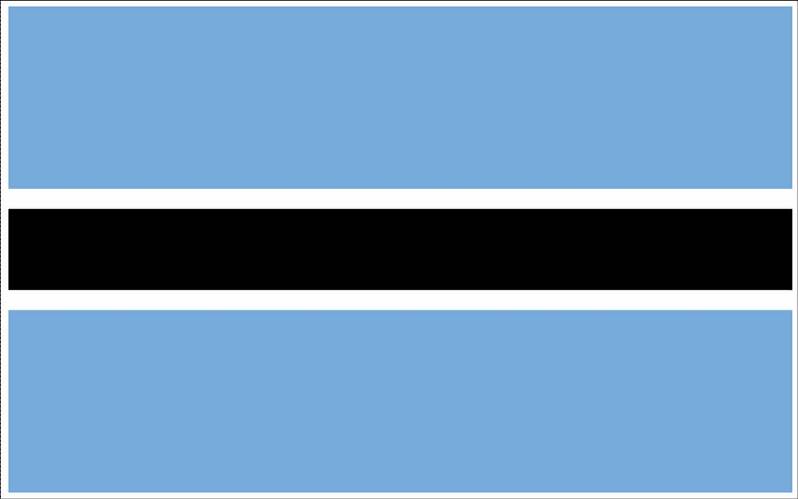
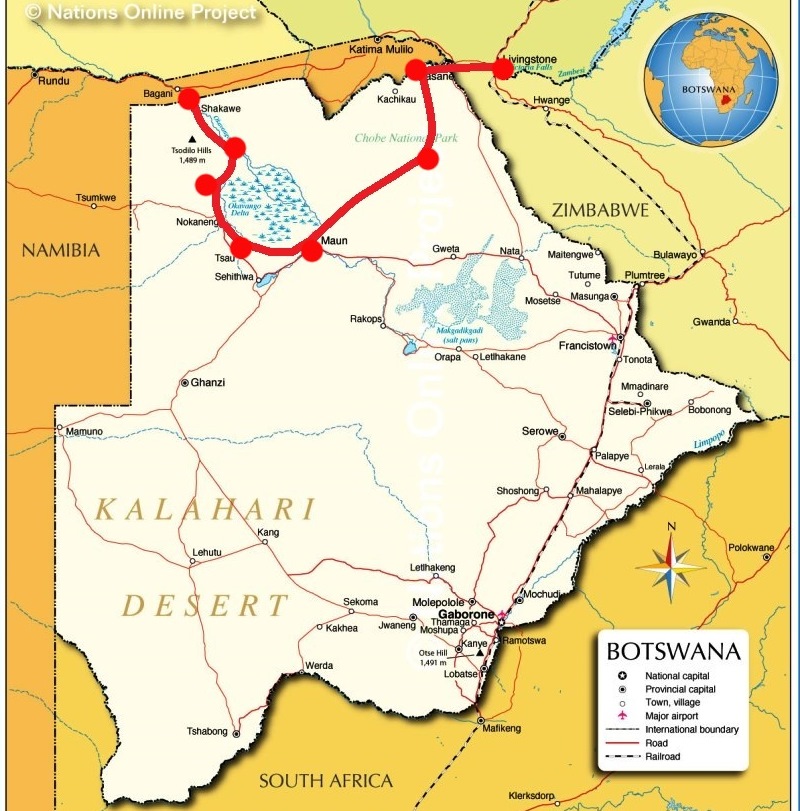
In this great adventure we rented a 4 × 4 truck in Victoria Falls, Zimbabwe and after admiring the mighty waterfalls, we slowly began the crossing to the south, towards the Cape of Good Hope, crossing boundless landscapes, deserts, savannahs, rivers up to the impact with the industrial and modern Cape Town, in South Africa. We will sleep almost every night in tents, we will cook using our camping kitchen and, in Botswana, we will live some of the most exciting travel experiences ever: from flying over the Okavango Delta, to sailing on old mokoro on this mythical right river. to name a few! Enjoy the reading!
Our suggested itinerary (09 days) | |
two days: | Kasane, Chobe NP (game drive by boat) |
two days: | Nata, Elephant Sands (elephant day) |
four days: | Maun (overflight on the Okavango delta and navigation in mokoro) |
one day: | transfer towards Namibia overland |
We enter Bostwana along a long strip of black asphalt at the edge of which occasionally you come across some zebra or elephant ... how strange to read the warning sign: "Prohibition to enter the bush due to the presence of ferocious animals“.
We set up the tents and, on board of an old boat, we begin the slow navigation on the Chobe river; we see: hippos, crocodiles, elephants, buffaloes, impalas and many colorful birds.
We leave at dawn to discover Chobe National Park.
It's very cold on these open off-road vehicles; like any game drive, we immediately immerse ourselves in the savannah's wild life. The river Chobe flows smoothly providing hospitality, shelter and livelihood to the numerous herds of animals.
Some wild dogs, in packs, approach menacingly towards a small group of ugly marabou, (it certainly cannot be said that it is a good-looking animal!), A dozen elephants, in single file, follows the head of the family who calls them back with a powerful trump card; some crocodiles bask in the sun along the river embankment ...
It's all very exciting and natural, sometimes a zebra comes out, then a giraffe, some oryxes and gazelles from Thomson, two springbok, a lioness ...
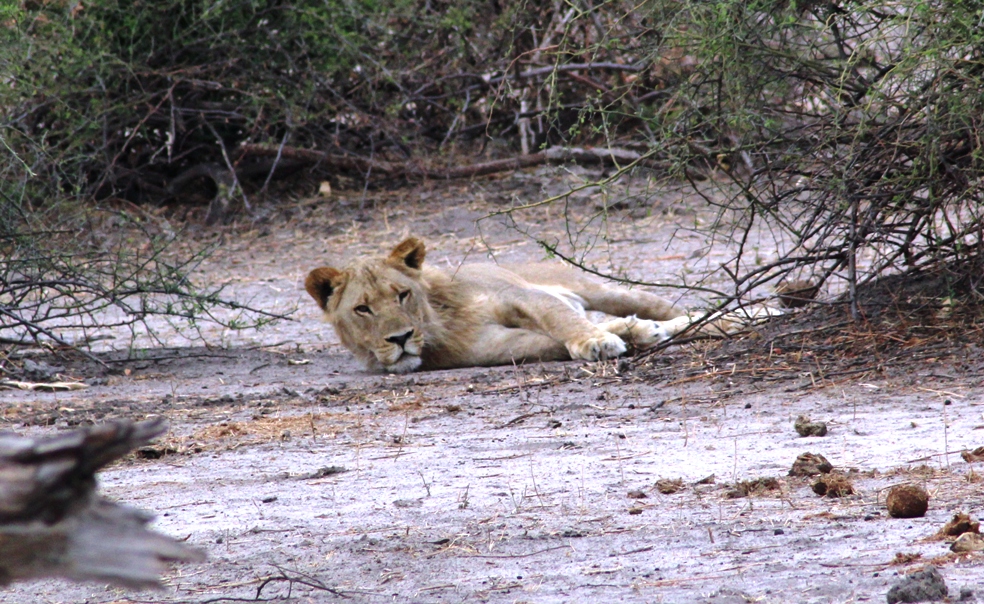
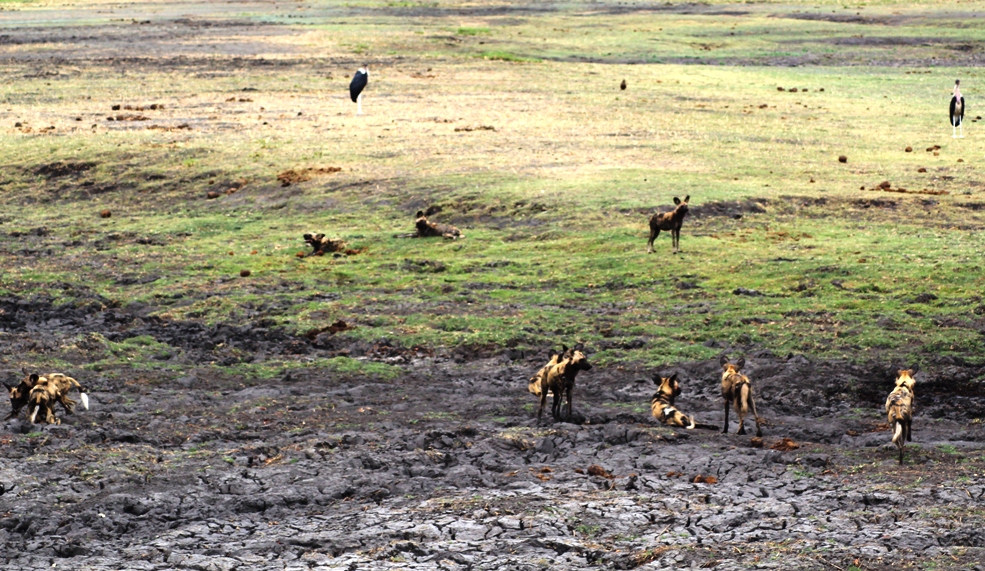
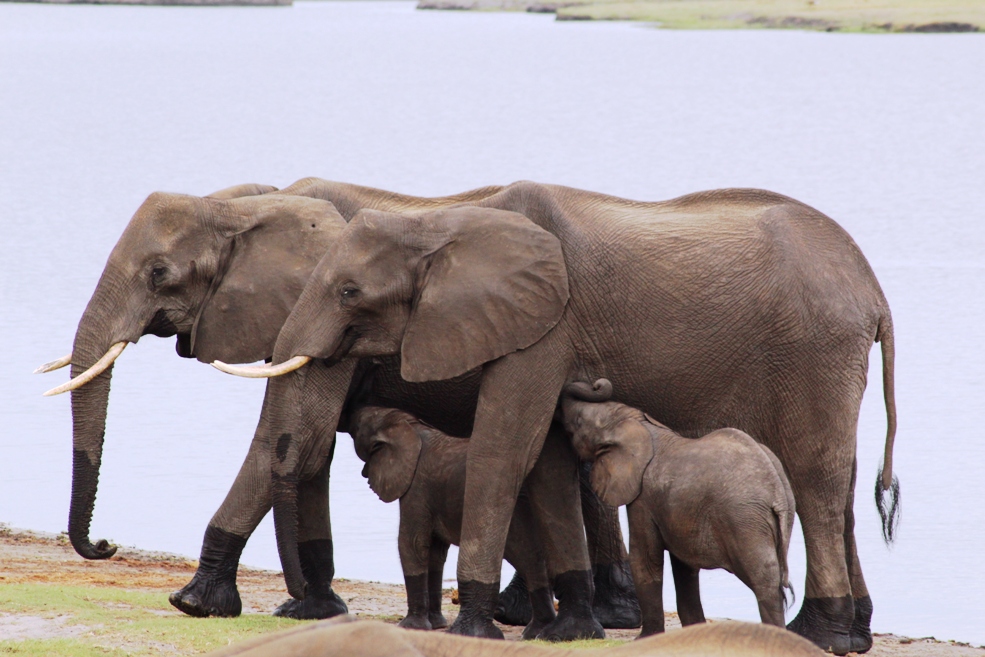
After a full day of trucks we stop at Nata and more precisely, for the night, at Elephant Sands.
There is a large puddle of water that attracts so many elephants ... fifteen male specimens soon come to drink, (they explained to us that during the day the males go and in the evening the females with the chicks).
In fact, the evening is magical! Three elephants of a few months look for the mother's trunk, its protection, two large males collide hard and the thud of their fangs resound loudly in the night.
During the night we make sure we don't keep any food inside our tents because for days a lion has been wandering in the field and often it gets a little too close to the tents!
Planet Baobab. A small resort that cures marvelous ancient baobabs ... there is one really majestic that they say is 2500 years old! It is impressive, it intimidates you, it seems an old sage who observes you severely ...
Finally we come to Maun accompanied by big gray clouds!
We take the opportunity to immediately mount the field and run at the airport before the weather conditions become prohibitive!
We take off with a Cessna just when it starts to rain but, after a brief turn to the left, we are immediately on this enormous flat expanse that surrounds the Okavango river. We spot many animals, some elephants, groups of antelopes, hippos, gazelles ... It is very exciting because you have a vision of life in the savannah from a privileged point of view ...
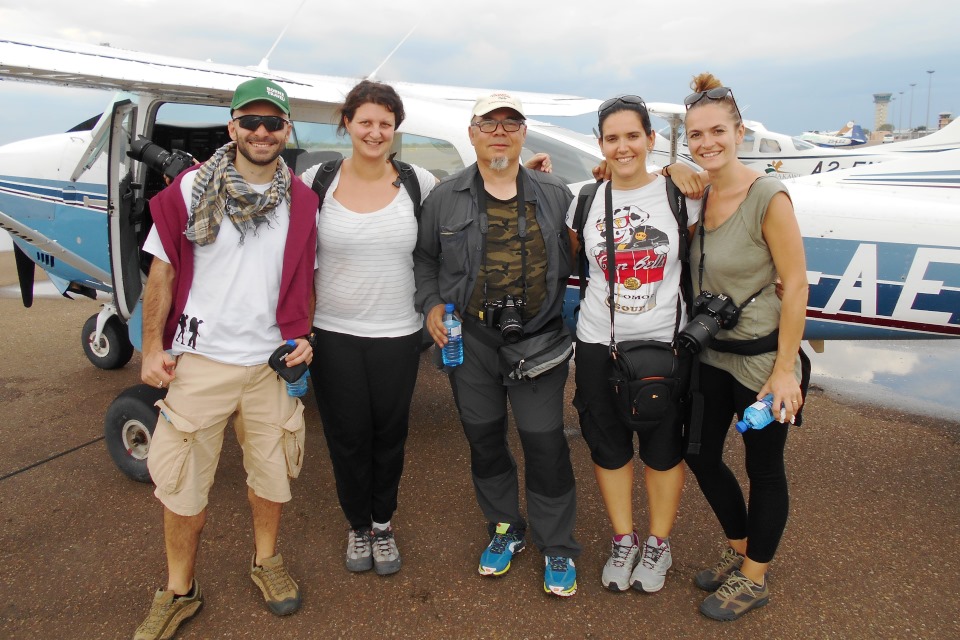
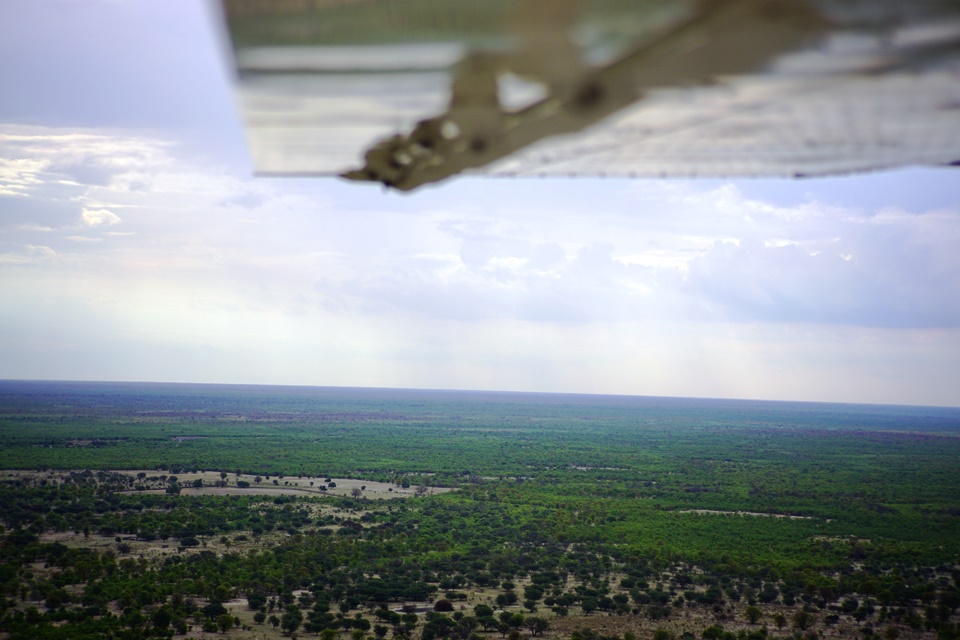
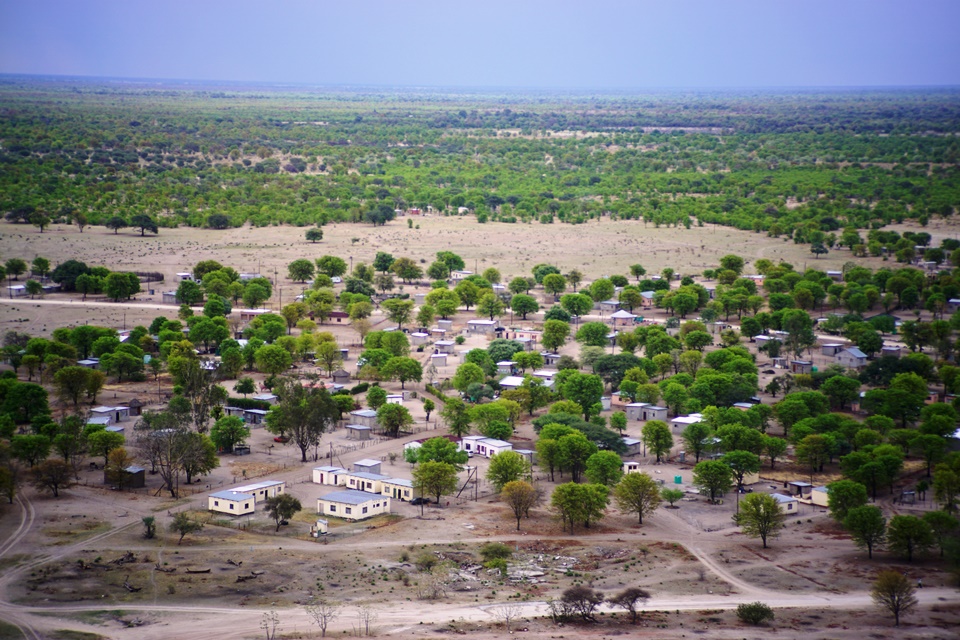
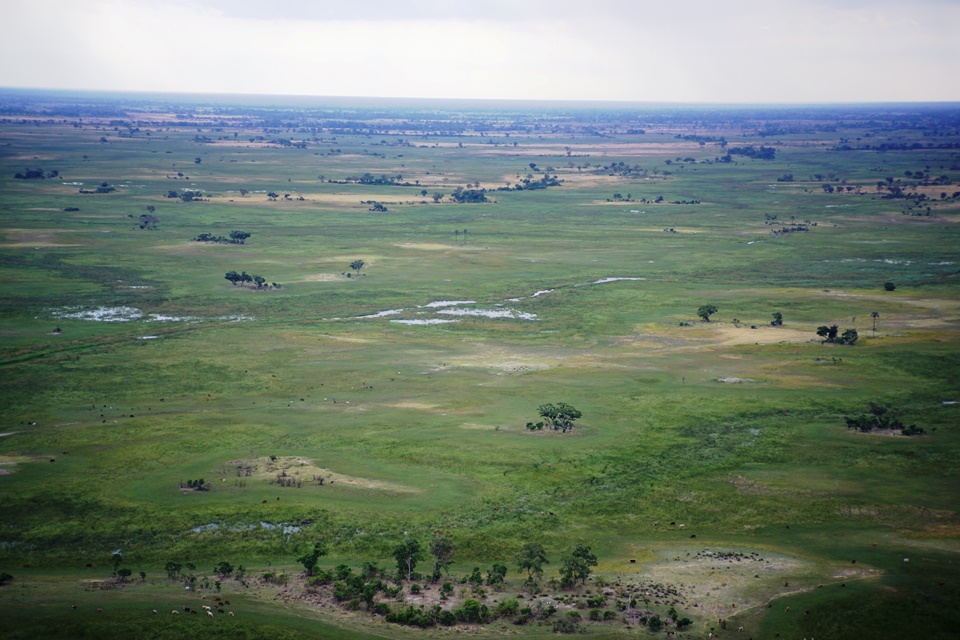
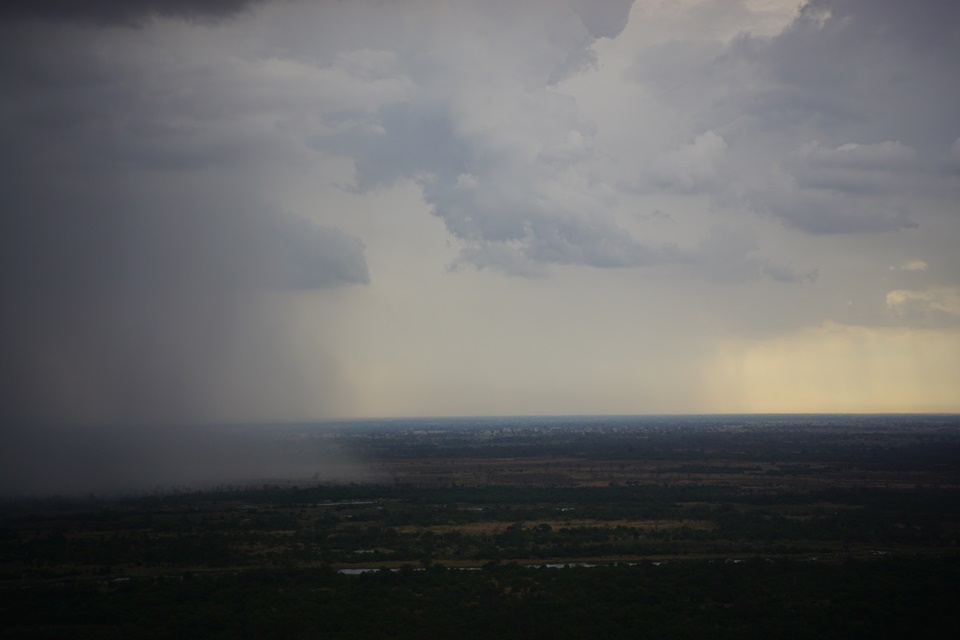
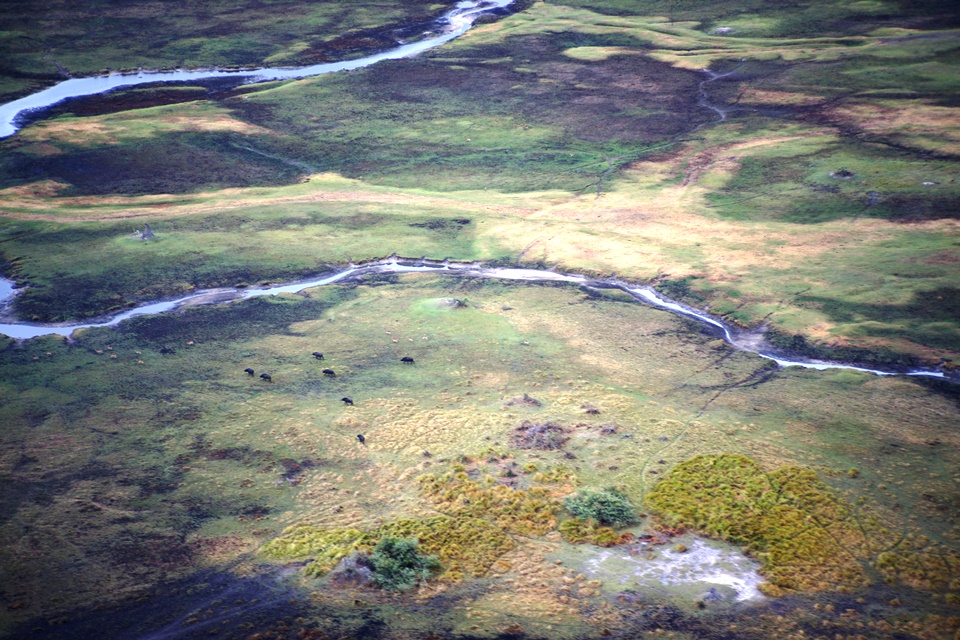
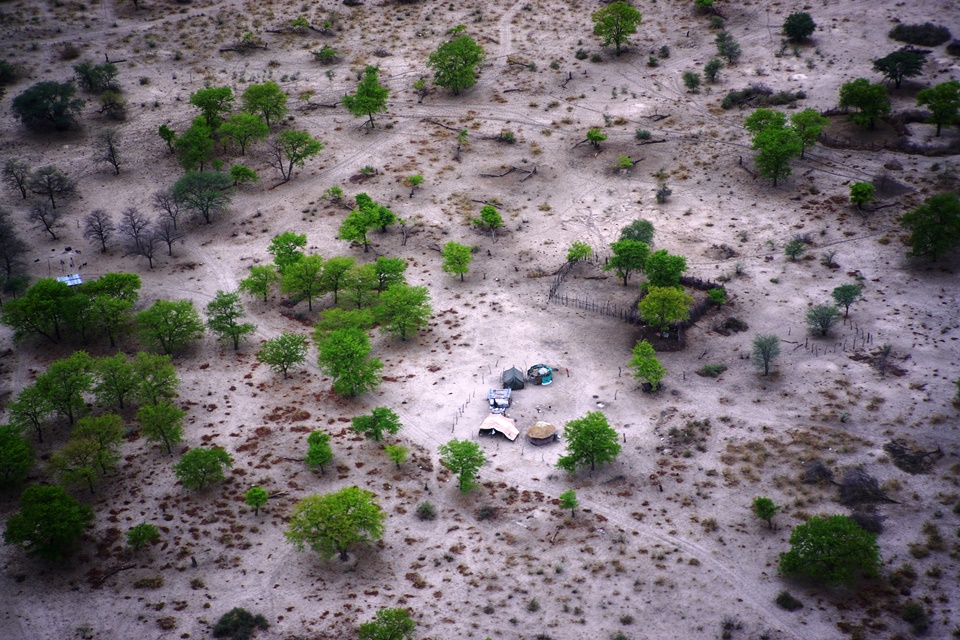
I felt like one of those old missionaries who moved from one remote village to another aboard these small planes ... flight to discover the Okavango delta... the river that does not flow into the sea and it does not even flow into another river but disperses into a swamp in an area of the desert of Kalahari note as: Okavango delta.
It starts to rain more intensely ... we return to the River Lodge Chair under a deluge, a downpour that in these places looks even more disastrous ... we give up cooking and take refuge in the bad restaurant of our lodge ...
At dawn we are all awake ... we did not rest very well because of the rain but the curtains held up the blow! We look out from the porthole, the sun is shining! Thank god!
By jeep we reach a Okavango roadstead and on the mokoro (a sort of pirogue made from a large trunk) we set off to discover this magnificent river, slowly gliding over its waters, almost gently caressing it!
My watch marks 45 °, the sun is very strong and we repair ourselves as we can ... suddenly our polers stop, they confabulate worried ... a big hippopotamus pops out of the gloomy seabed, little would be enough to make us sink ... after all this is the animal that reaps most victims ever in Africa ...
We observe the frightened scene but soon after it goes away… escaped the danger we continue our silent and slow navigation ...
We penetrate among large canes while antelopes and gazelles graze and wander undisturbed ... we decide to descend from the mokoro and follow our guide into the bush amid age-old termite mounds, threatening bushes and a herd of zebras watching us in amazement!
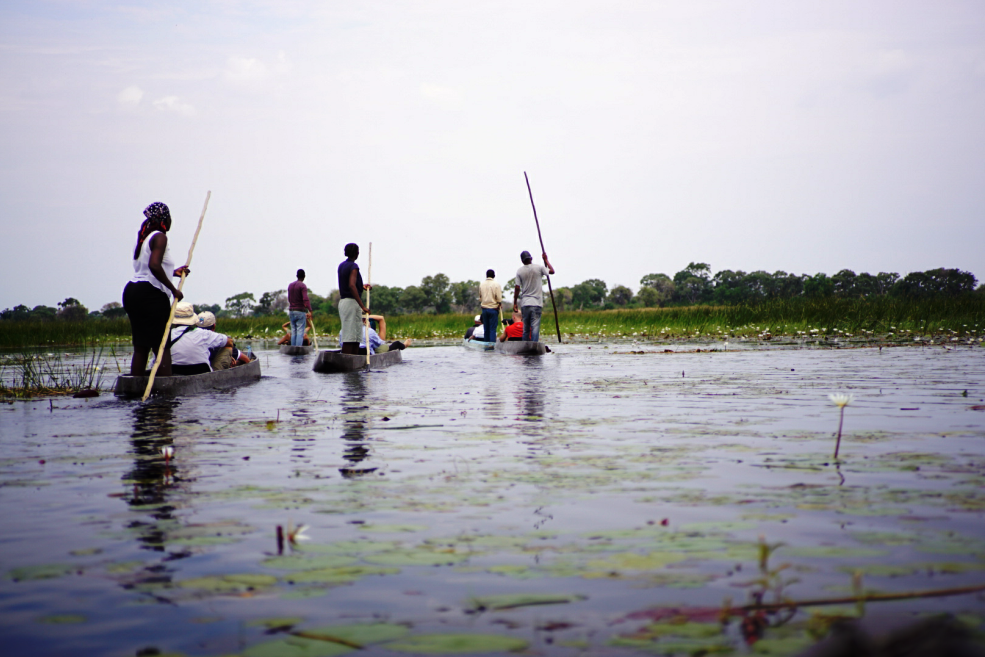
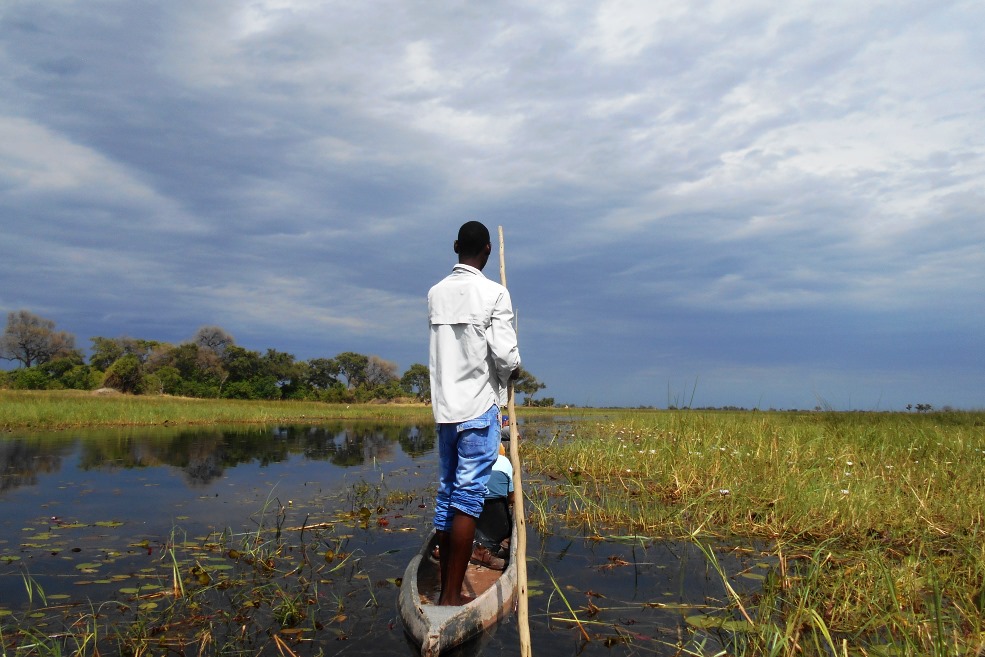
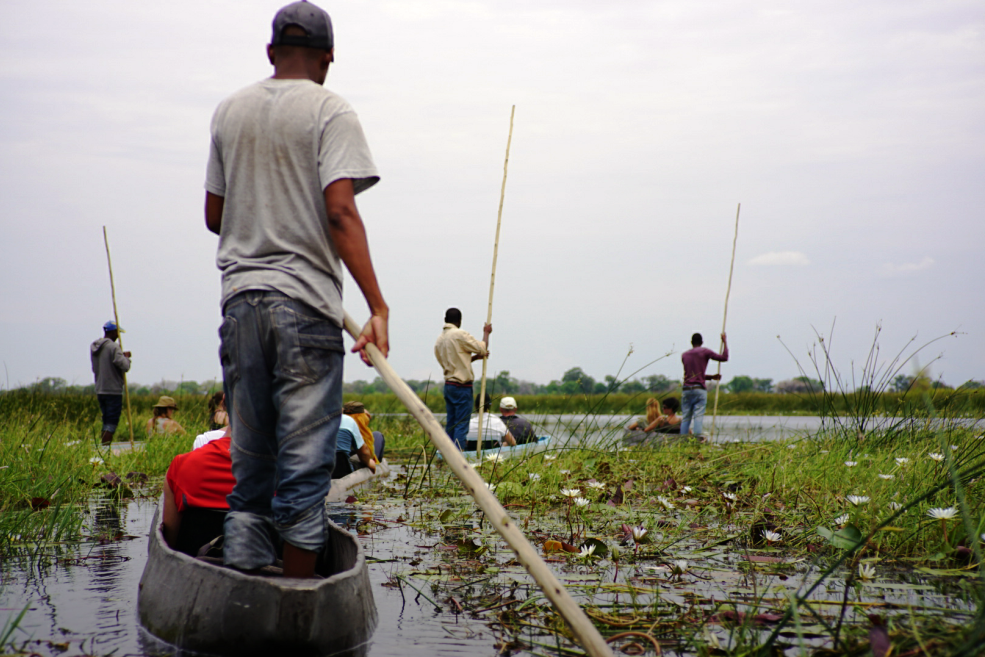
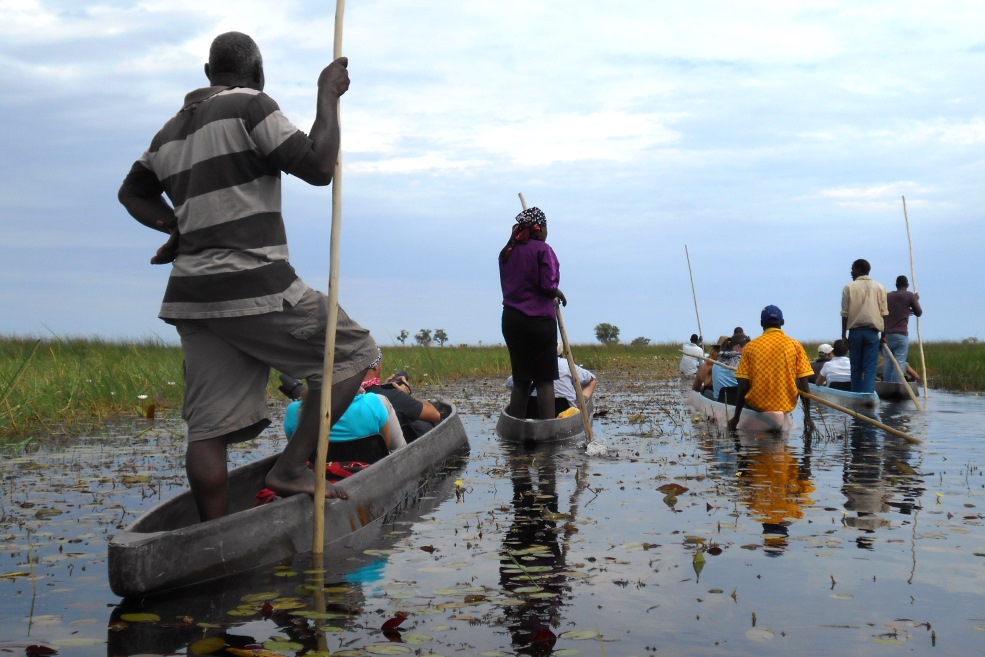
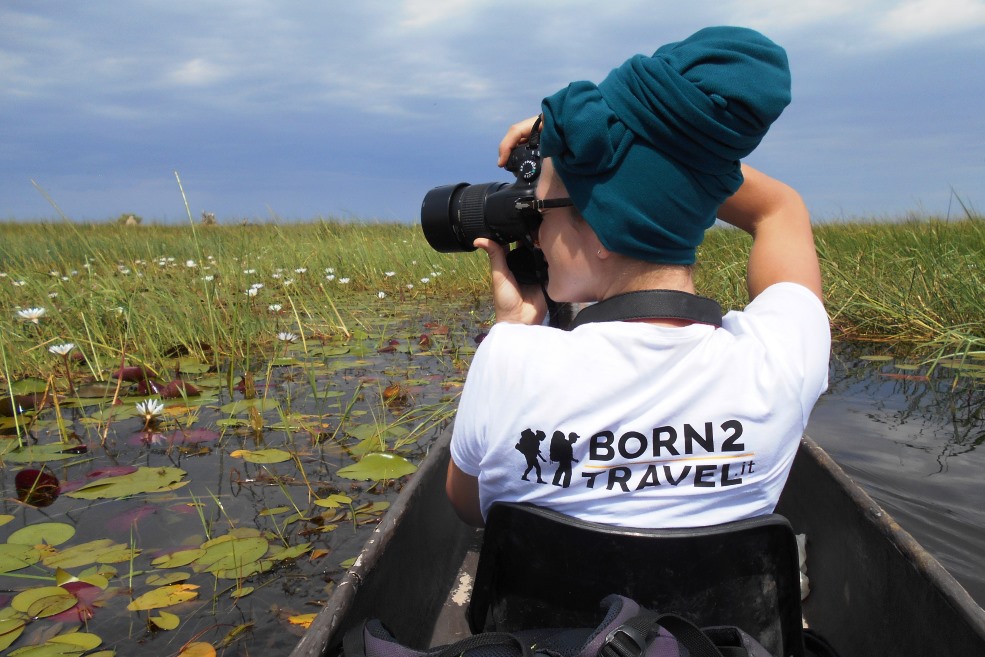
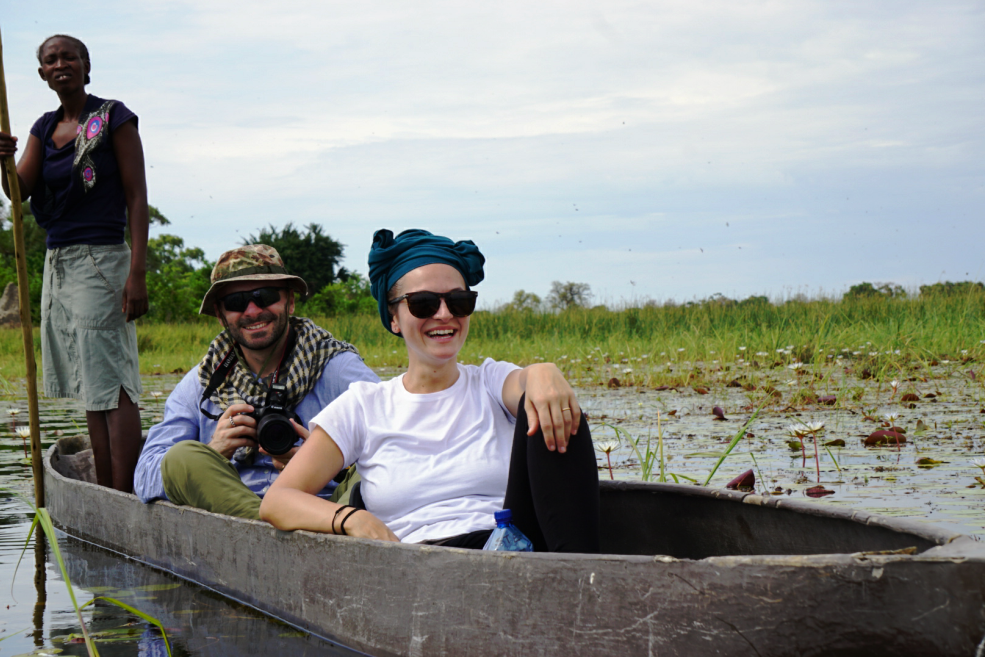
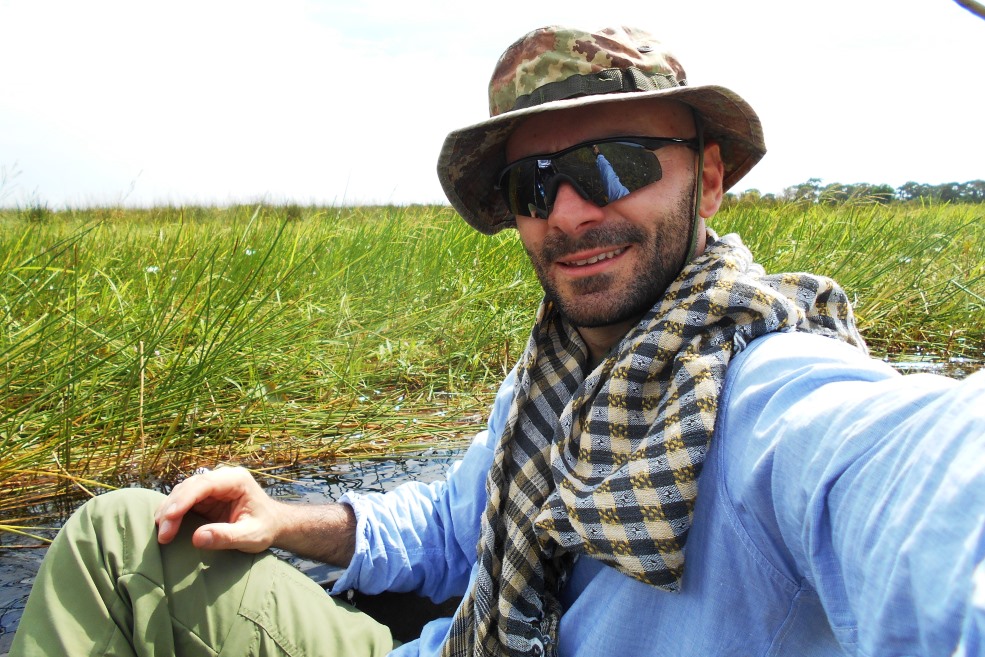
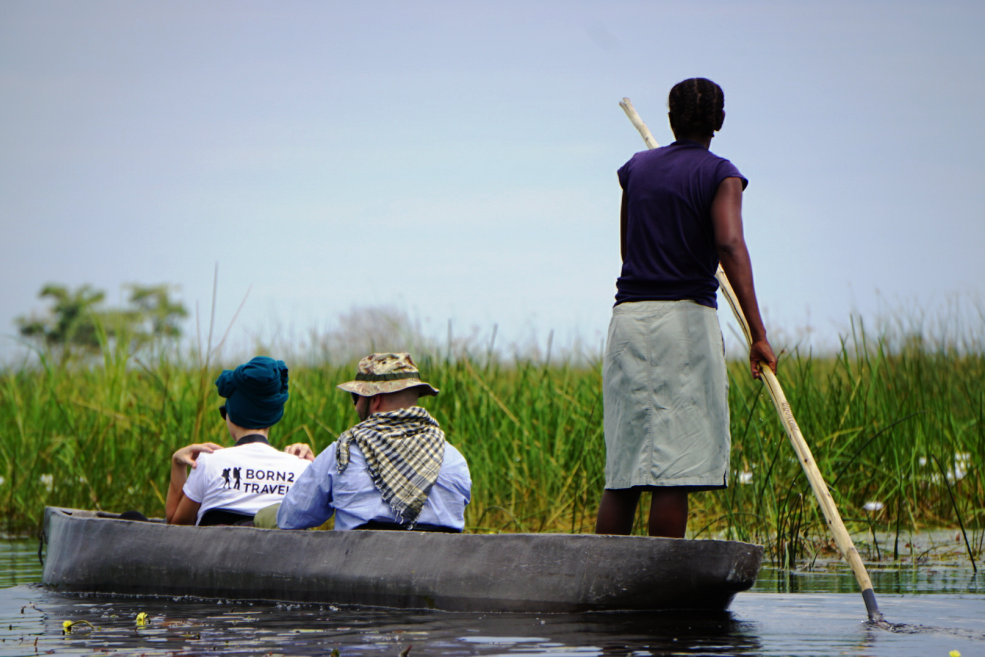
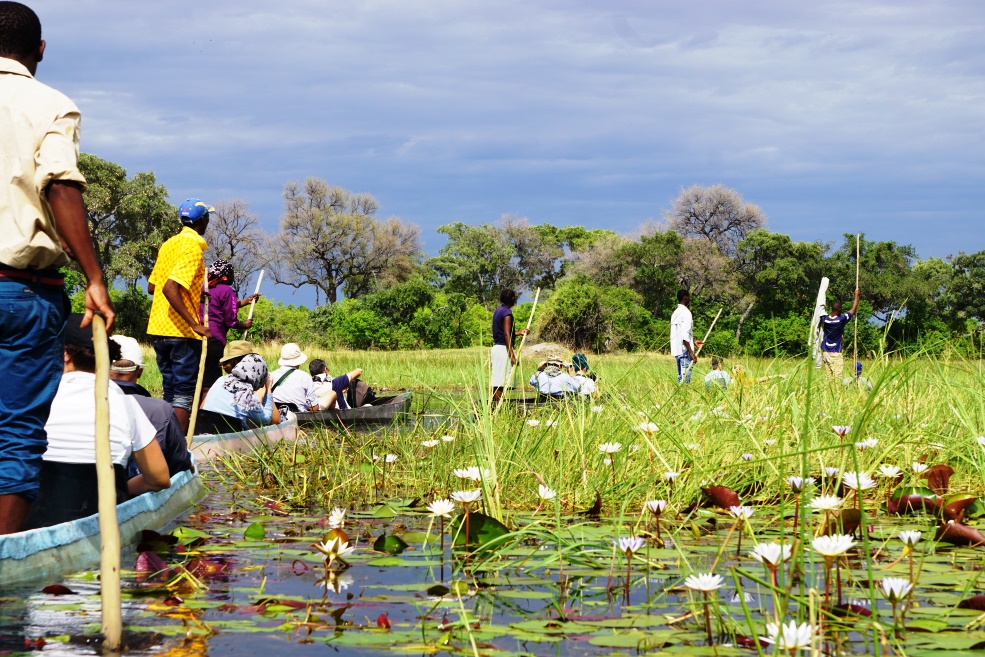
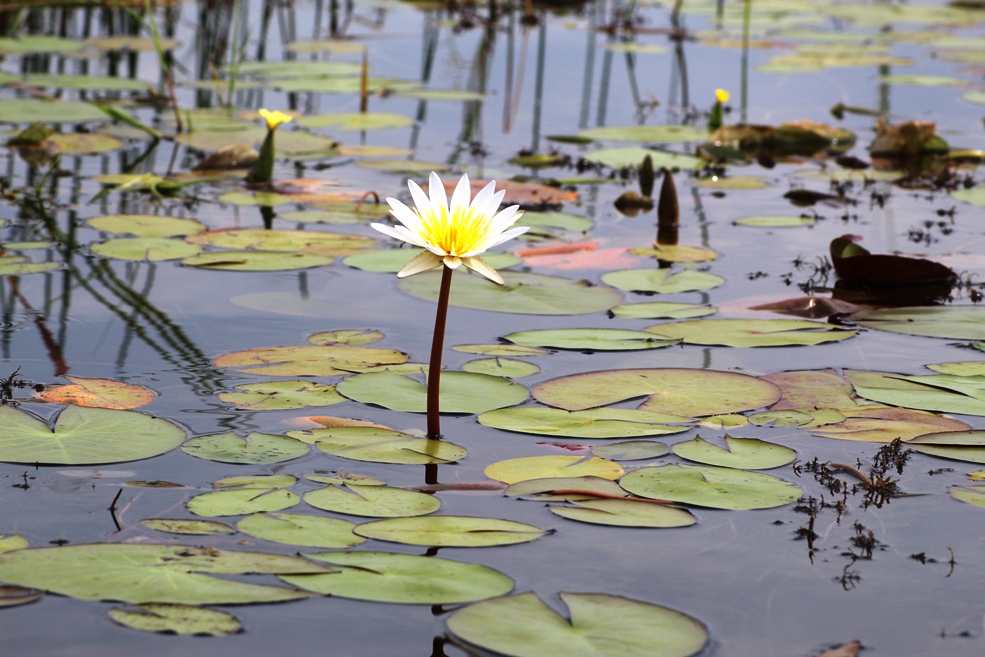
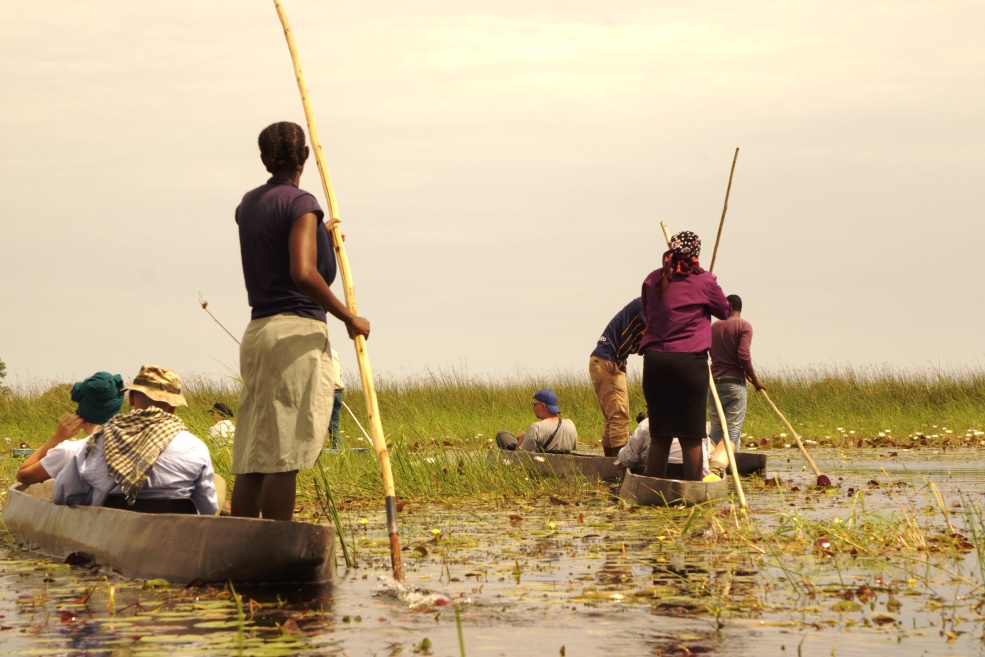
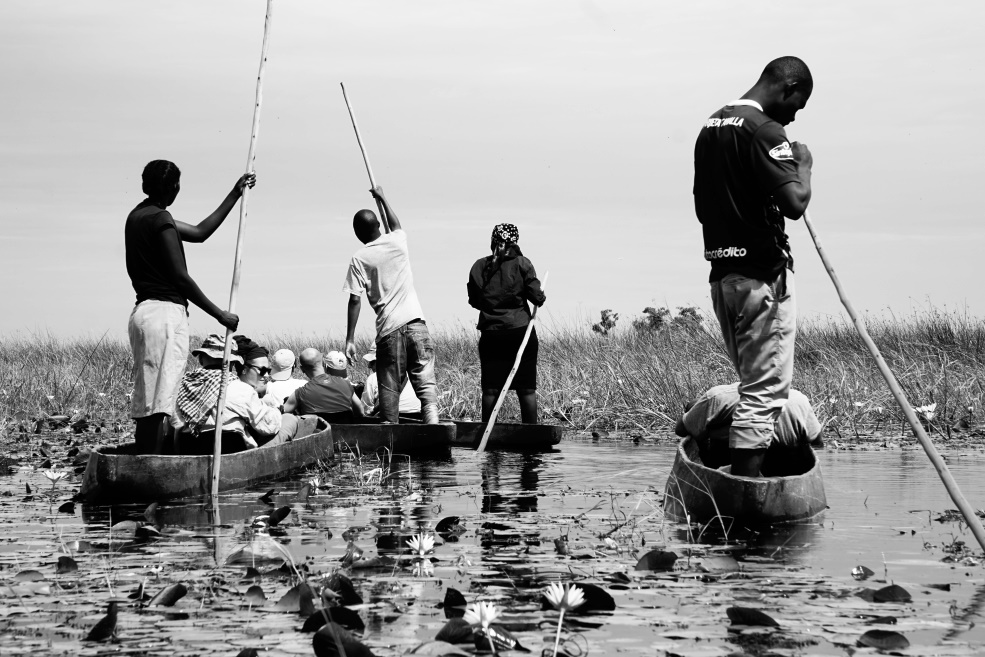
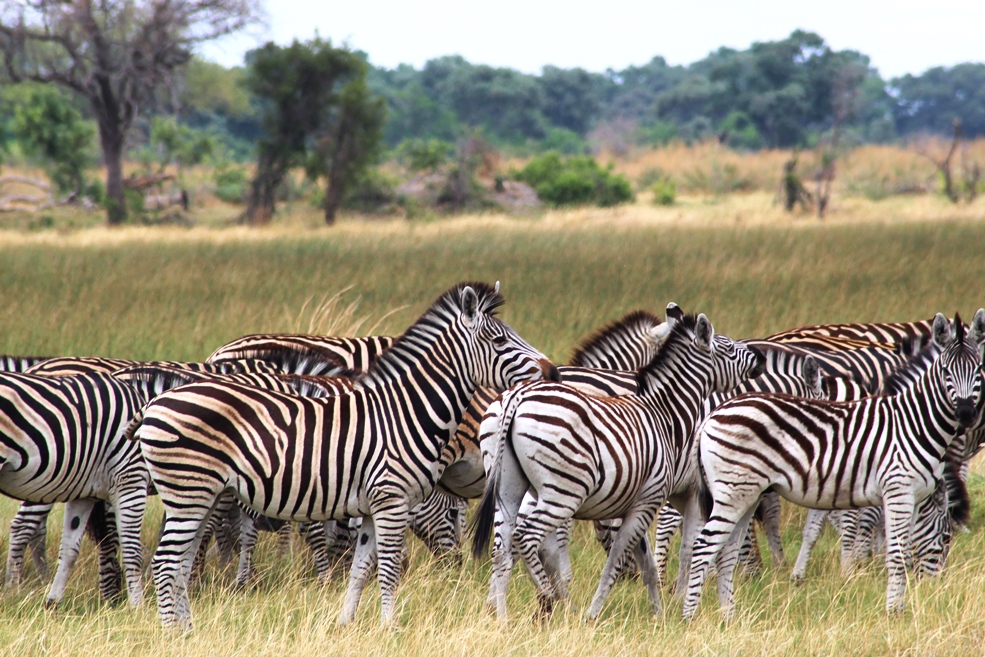
We wake up at dawn and, after a few hours of travel, we are on the border with Namibia.
The background suddenly changes: the green grasslands of Botswana are replaced by villages of straw huts on red soil; naked children who come to see this strange vehicle greeting us with huge and sincere smiles ... our destination is Rundu, a village on the Okavango in front of Angola ... but this is another story!
Error: No feed found.
Please go to the Instagram Feed settings page to create a feed.